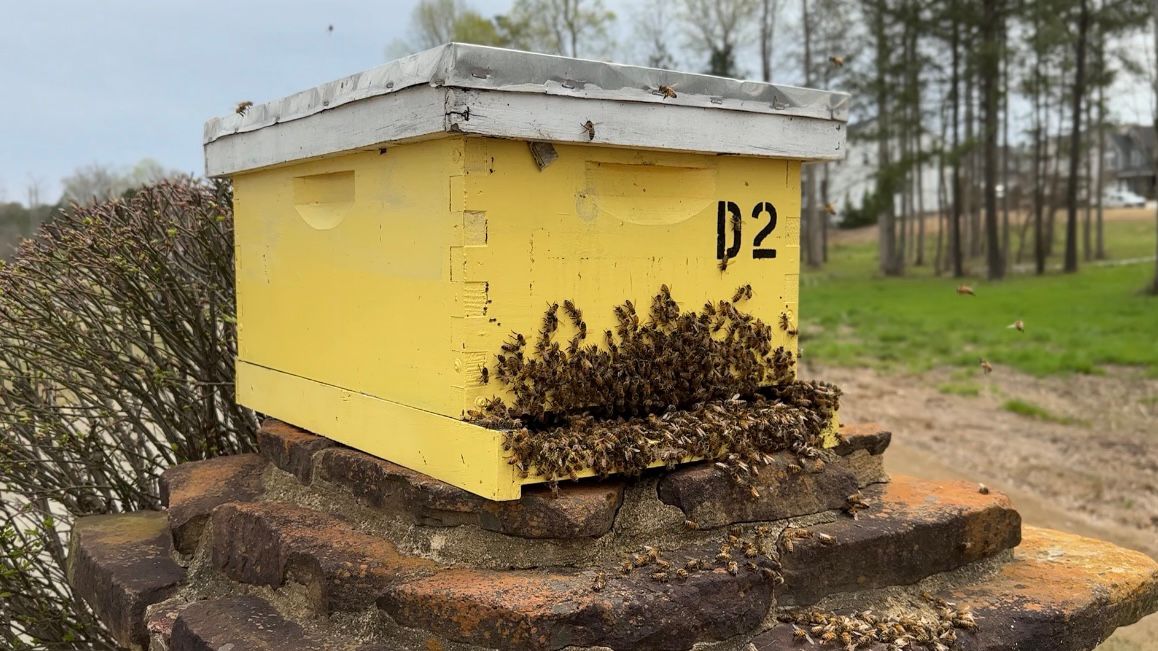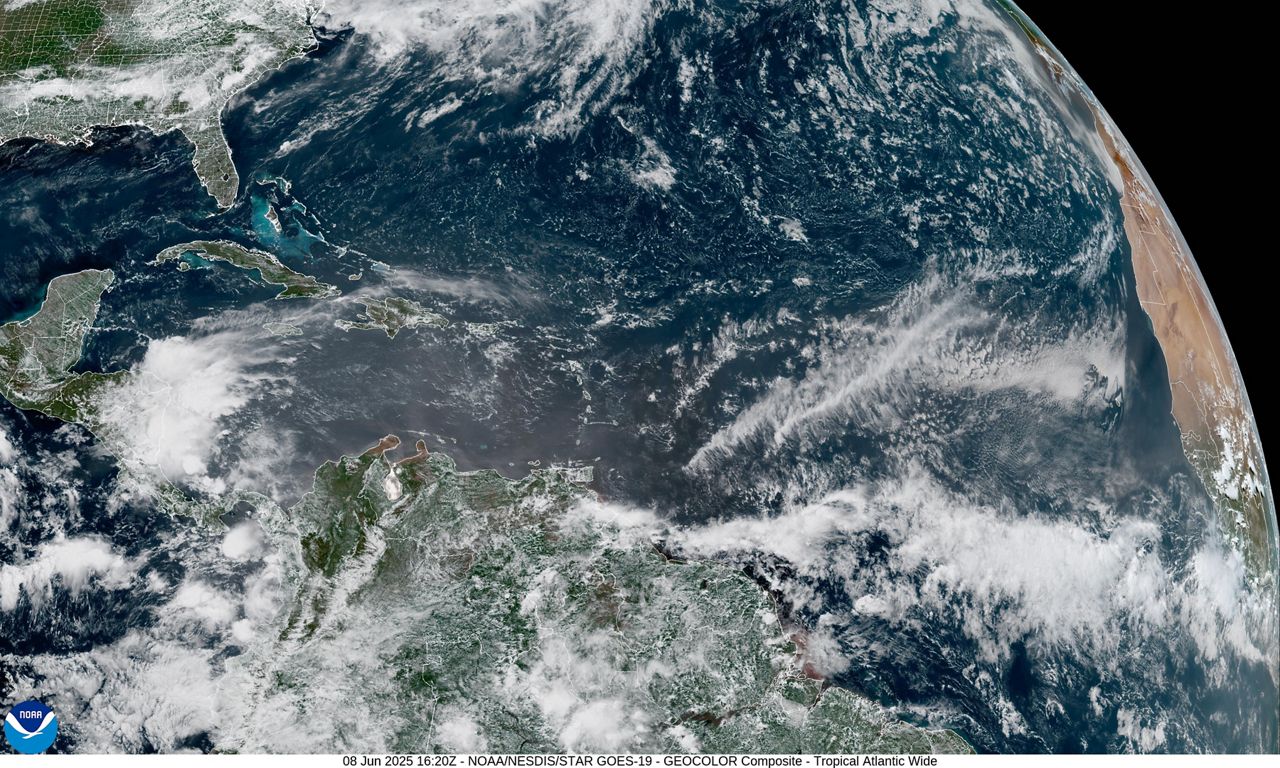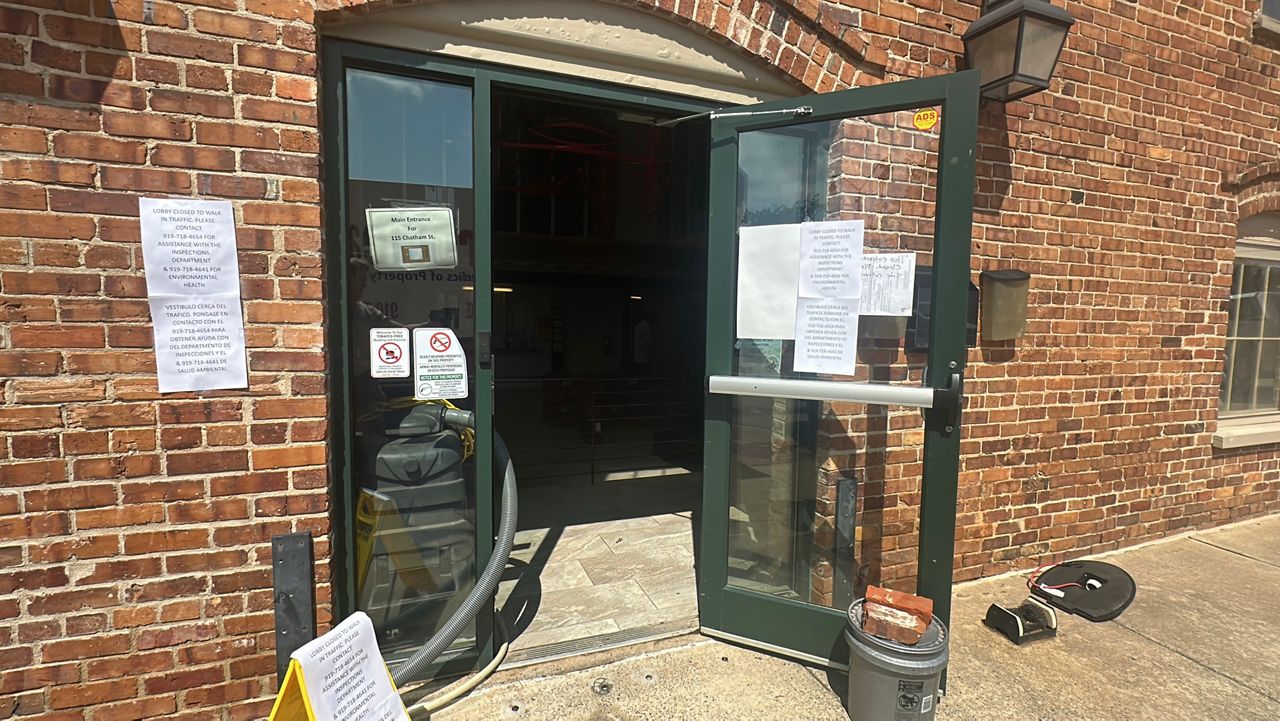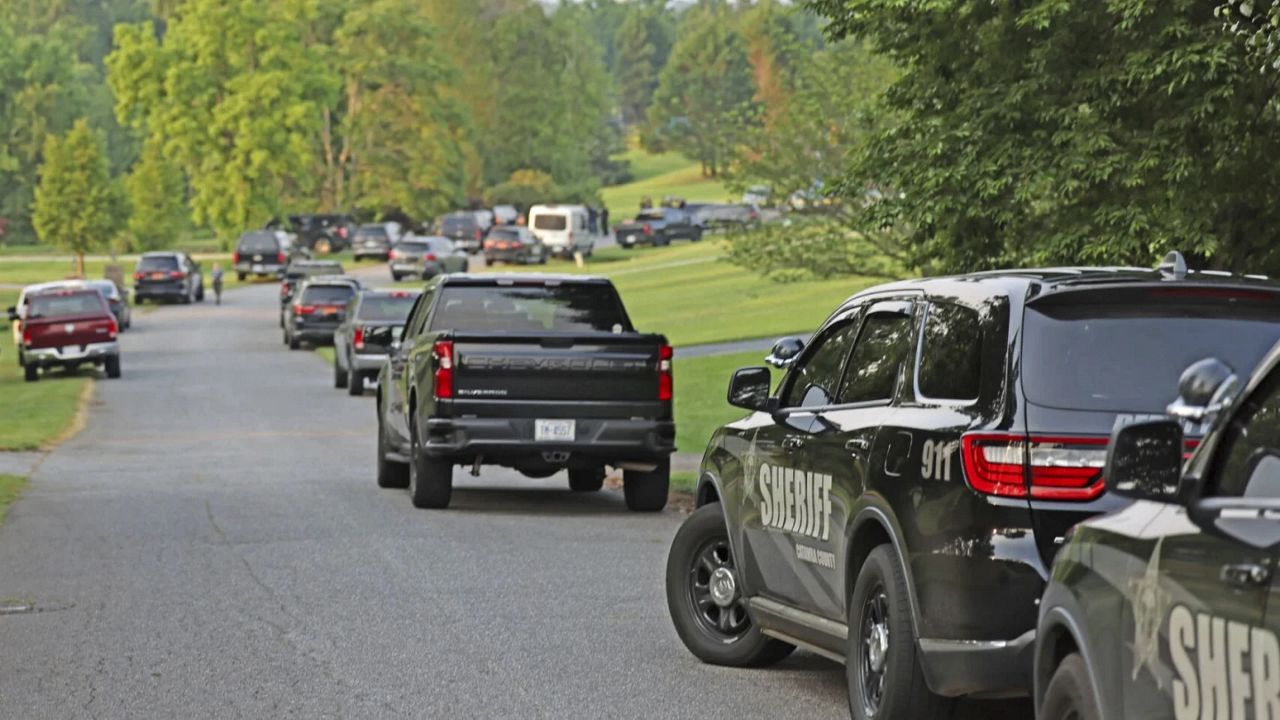RALEIGH, N.C. – Pollen brings two things – sneezing and swarms of bees, but beekeepers across the state are working to educate the public on how to help honeybees this spring.
People can expect to see more bees out and about as they collect as much pollen and nectar as possible to repopulate their colonies.
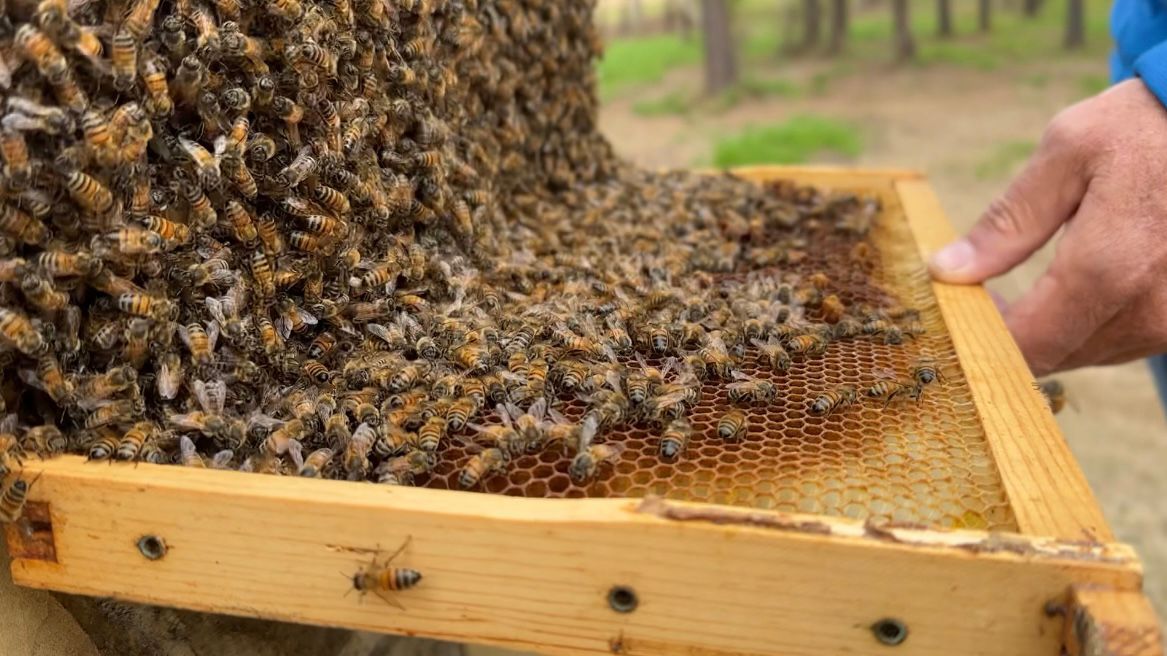
“They are finding extra nectar, lots of extra pollen and their populations are growing exponentially,” Chris Hagwood, a beekeeper in Wake County, said. “When they reach a certain amount of bees, it's really too much for the existing hive wherever they lived so the old queen is inside this cluster, and she left with about half to maybe 60% of the bees in the cluster.”
However, as developments reduce the wooded areas bees would naturally inhabit, the Wake County Beekeepers Association is working to educate the public on what to do if they encounter a swarm of bees near their home or other public space.
“The only thing that's left . . . are cavities in homes so we end up with bees living in people’s soffits,” Hagwood said. “Really an opening less than the size of your pinky, that's enough for the bees to go in and start building a nest. I didn't think too much about needing to rescue swarms until I became a beekeeper.”
Hagwood said just because they’re flying around in droves doesn’t mean they’re angry, but he recognizes it’s hard for most people to be as comfortable around bees as he is.
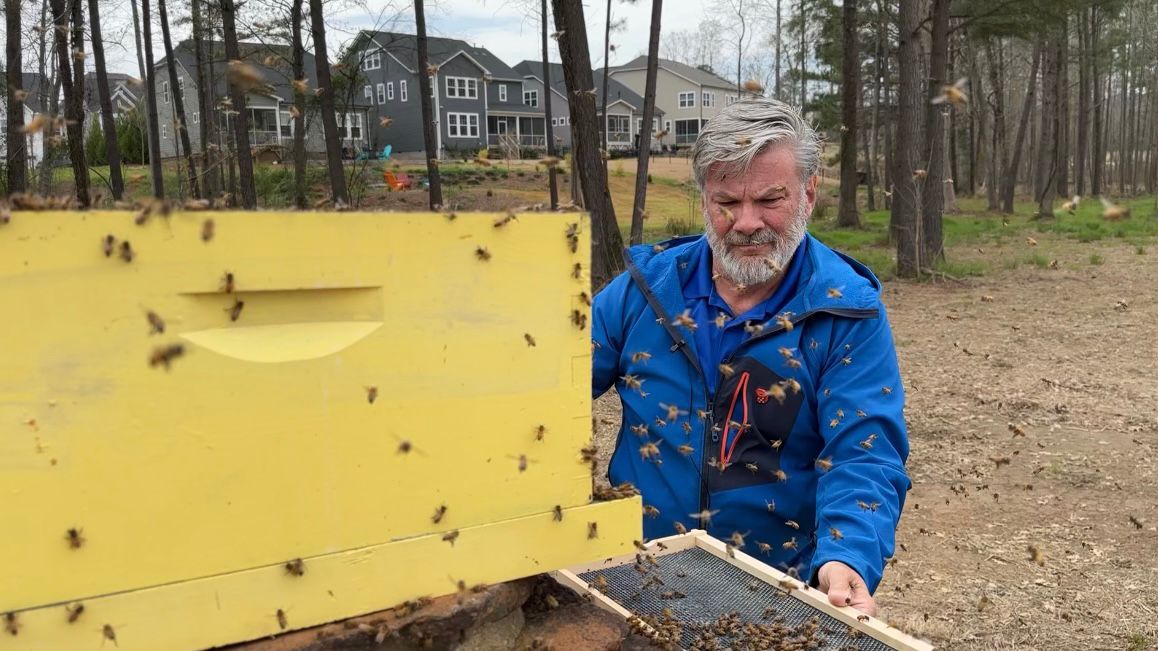
“Your wasps, your hornets are going to be much more prone to sting than honeybees and so people get used to the idea that because it’s near you, it has the intention to sting you,” Hagwood said.
There are over 400 species of native bees in North Carolina, although the honeybee is not one of them. He said swarming will peak in April and May and then dwindle through June.
“So because beekeepers manage colonies and help them reproduce, the honeybee population is pretty good,” Hagwood said. “We increase their population, but native bees are susceptible to stressors.”
North Carolina has a rich history in beekeeping and has the largest and oldest beekeepers association in the United States. The four hundred-plus beekeepers in Wake County are only too happy to remove any bees that may have made their home inside yours at no charge.
“It’s really sad, it happens from time to time where we receive a call, but before we can get there, someone involved became so afraid they sprayed and that kills the colony,” Hagwood said. “And we are really unable to rescue them at that point.”
North Carolina beekeepers have one main honey harvest each year from late May to early June.
Hagwood teaches beekeeping at Johnston Community College to anyone interested in picking up the hobby.
